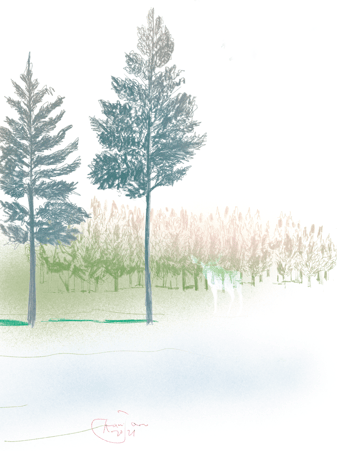Agriculture over the last 100 years has developed in such a way that it has progressively degraded and depleted our planet’s natural resources.
Using synthetic fertilizers, herbicides and pesticides to produce our food, in lifeless fields, causes pollution to the soil, our water and our air, and is not only among the primary factors of biodiversity loss but also a serious problem for our health. Not to mention the fact that animals are transformed into beings worth nothing but the price of their meat.
To escape the trap, we need an ecological approach to agriculture, with a strictly scientific method, based on the regeneration of the soil and on the correct nutrition of plants, which promotes and manages biodiversity as an ethical value and as an instrument of production.
Projects in progress
Regenerating
Villa Fortuna
An experimental project, managed directly by Fondazione Capellino. The concrete execution of the project is entrusted to an ad hoc company, RVF Società Agricola Sperimentale S.r.l, wholly owned by the Foundation, that runs it, to avoid any conflict of interest.
The project covers 22 hectares in the municipality of San Salvatore Monferrato (IT). It has a ten-year duration (2021-2030). with a total budget of €3,000,000.
The project in a nutshell
Regenerating the soil
Soil is home to biodiversity. It nourishes life and determines the quality of our water, our air, and the food we eat. Industrial agriculture has simplified the approach to soil to the point of denying the importance of its living organisms, such as fungi, insects and bacteria. These are what bring back to the soil its natural fertility. Through the use of natural bio-stimulants, that are produced with microorganisms from our forest, and the elimination of invasive practices (such as plowing), we aim to respect the role of soil and restore its fertility.
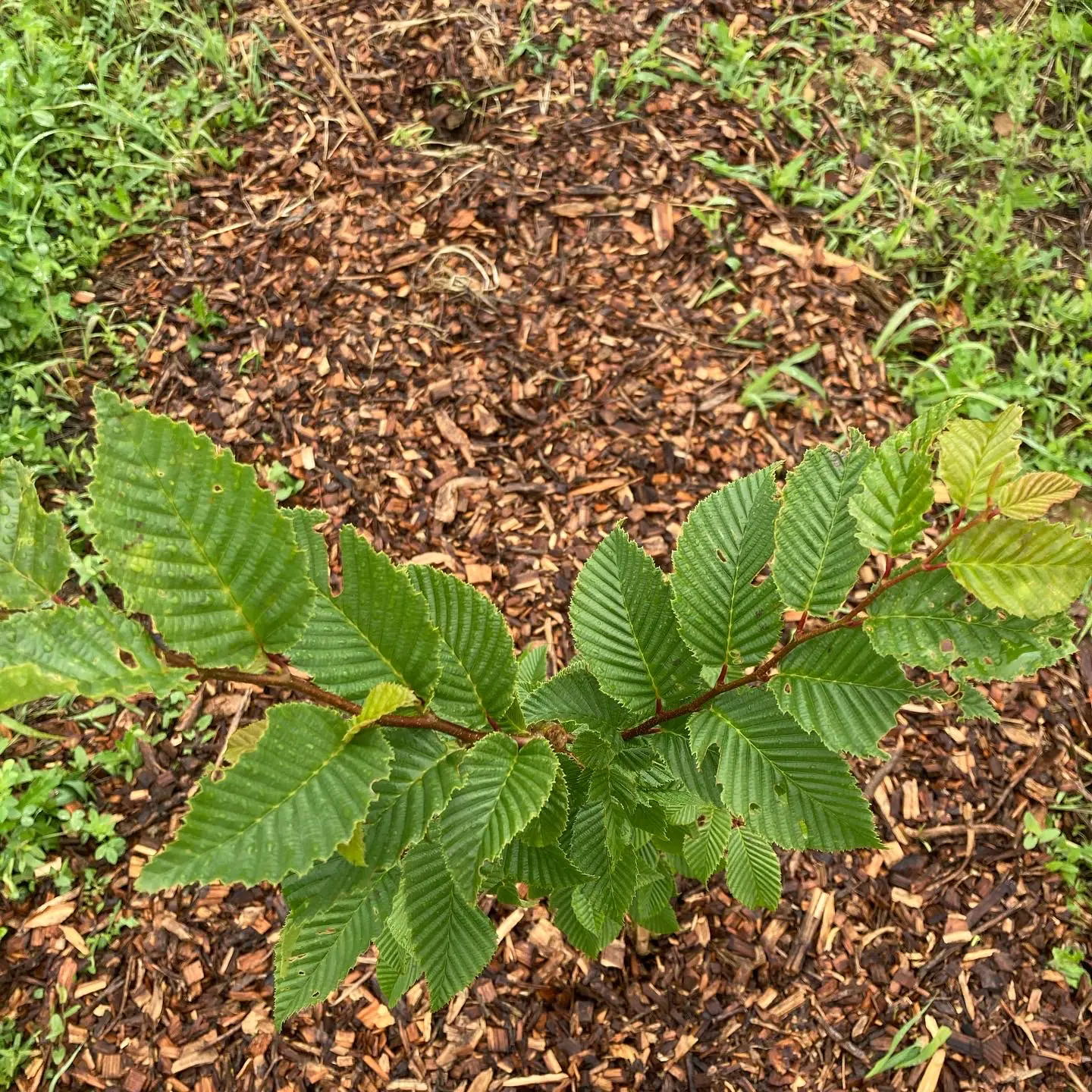
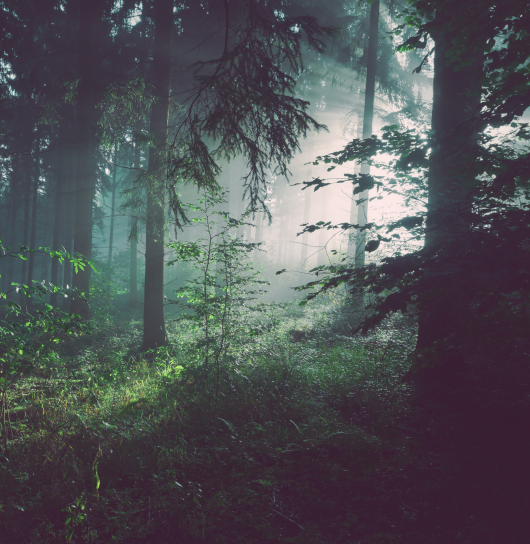
Restoring the woodland
With the abandonment of the area and agricultural activities, spontaneous forest regrowth has naturally colonized a lot of terrain. Together with the Po Regional Park, we have started to restore the local woodland, eliminating invasive species such as the Robinia tree and reintroducing only plants typical of the Piedmont Region. With this project, our long-term aim is to restore the original habitat, improve the quality of the air and re-qualify the landscape.
Safeguarding the fauna
Through photo traps distributed in the surrounding fields and woods, we constantly monitor the activity of the fauna, which is an important indicator of the functional level of the habitat. With a census we carried out of the bird life in Villa Fortuna, we were able to identify 32 species of birds: some of which, such as the owl and the swallow, the Ministry of the Environment reported as declining in numbers because of the loss of habitat. Our goal is to create a wildlife oasis protected from hunting and other anthropogenic activities that disturb their reproduction.
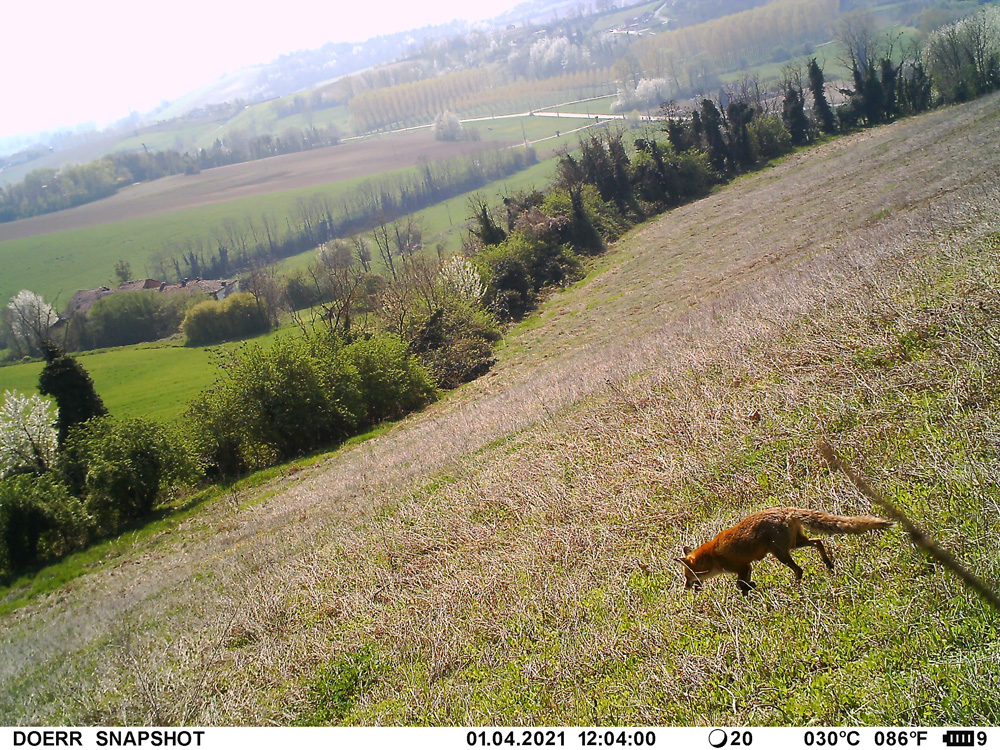
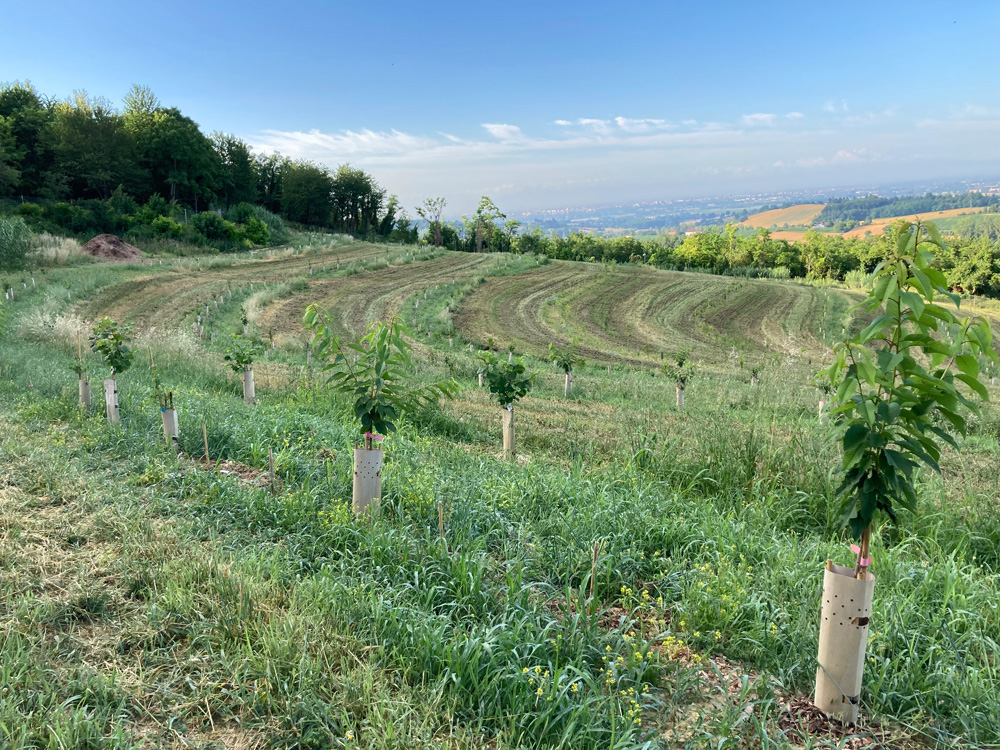
Experimenting with Agroforestry
This practice consists in associating forest plants with agricultural ones, in order to retain water and produce biomass in order to regenerate the soil and create the conditions necessary for biodiversity, which, in its turn, becomes a natural tool of production optimization. In 2021, with the State University of Milan, we set up our first structure on an area of 3.5 hectares, christened it “La Valletta” and divided it into three different productive fruit orchards.
Encouraging scientific research
We collect and keep the documentation regarding all planning and monitoring works, as well as quantitative and qualitative data useful for maintaining a scientific method in our experimentation activities.
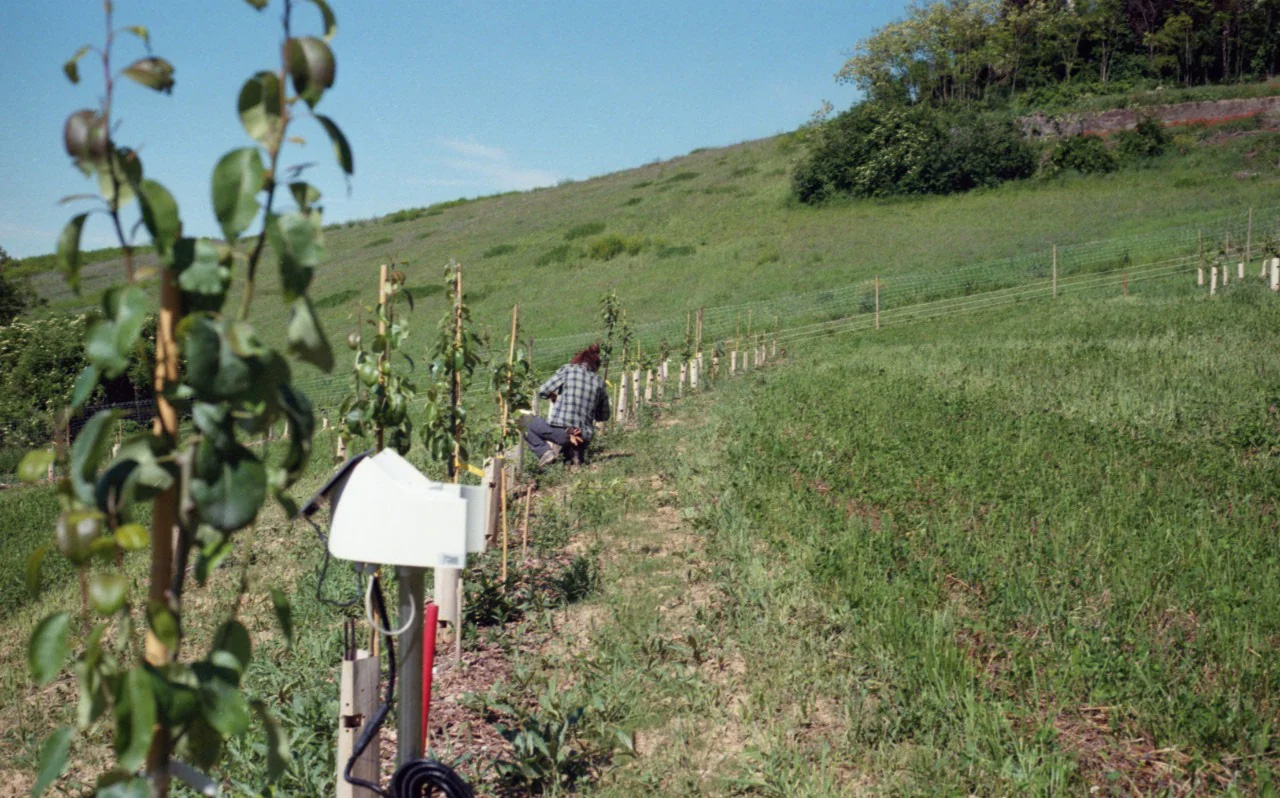
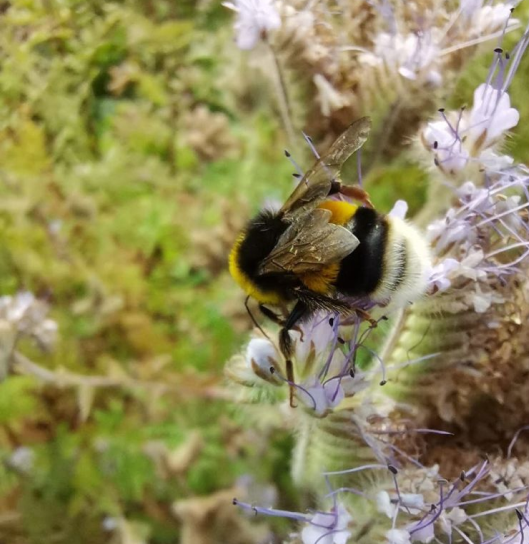
Defending plants with zero
impact on the environment
With the help of researchers in the field, and starting with what nature itself makes available to us, we are working to develop new techniques of defence against plant pests (plant macerates; insect antagonists), completely abolishing the use of substances that damage the environment.
Practicing forest nursery gardening
With our greenhouse dedicated to nursery gardening, we are committed to propagating the forest trees already planted at Villa Fortuna in order to use them in projects dedicated to our cities. We will thus help to respond to the urgent need to:
-
store carbon dioxide produced in large quantities by industrial combustion processes, traffic and heating;
-
influence weather conditions and improve the protection from noise pollution.
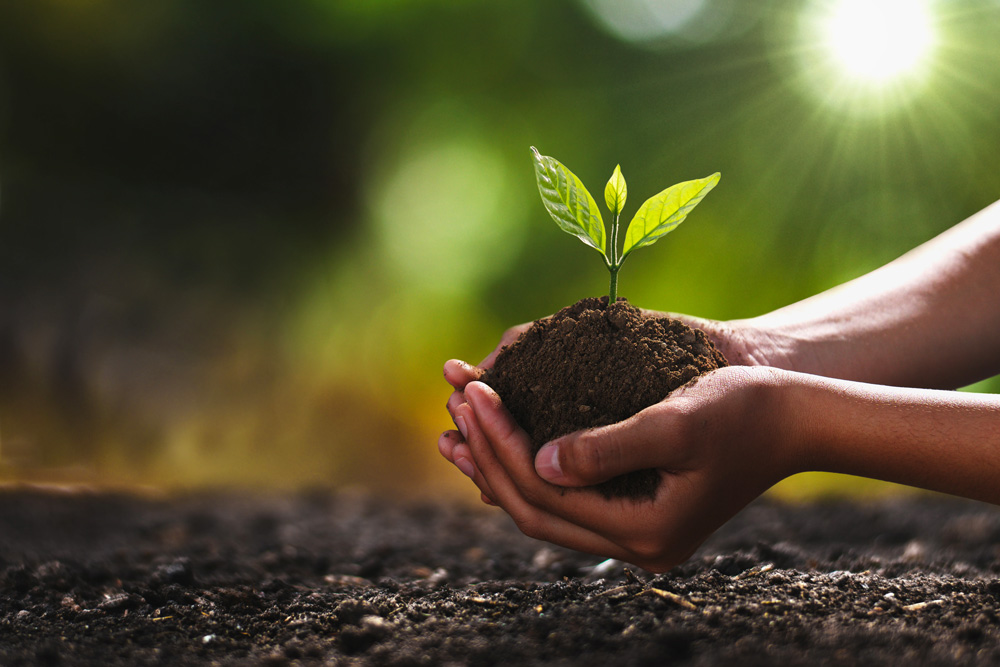
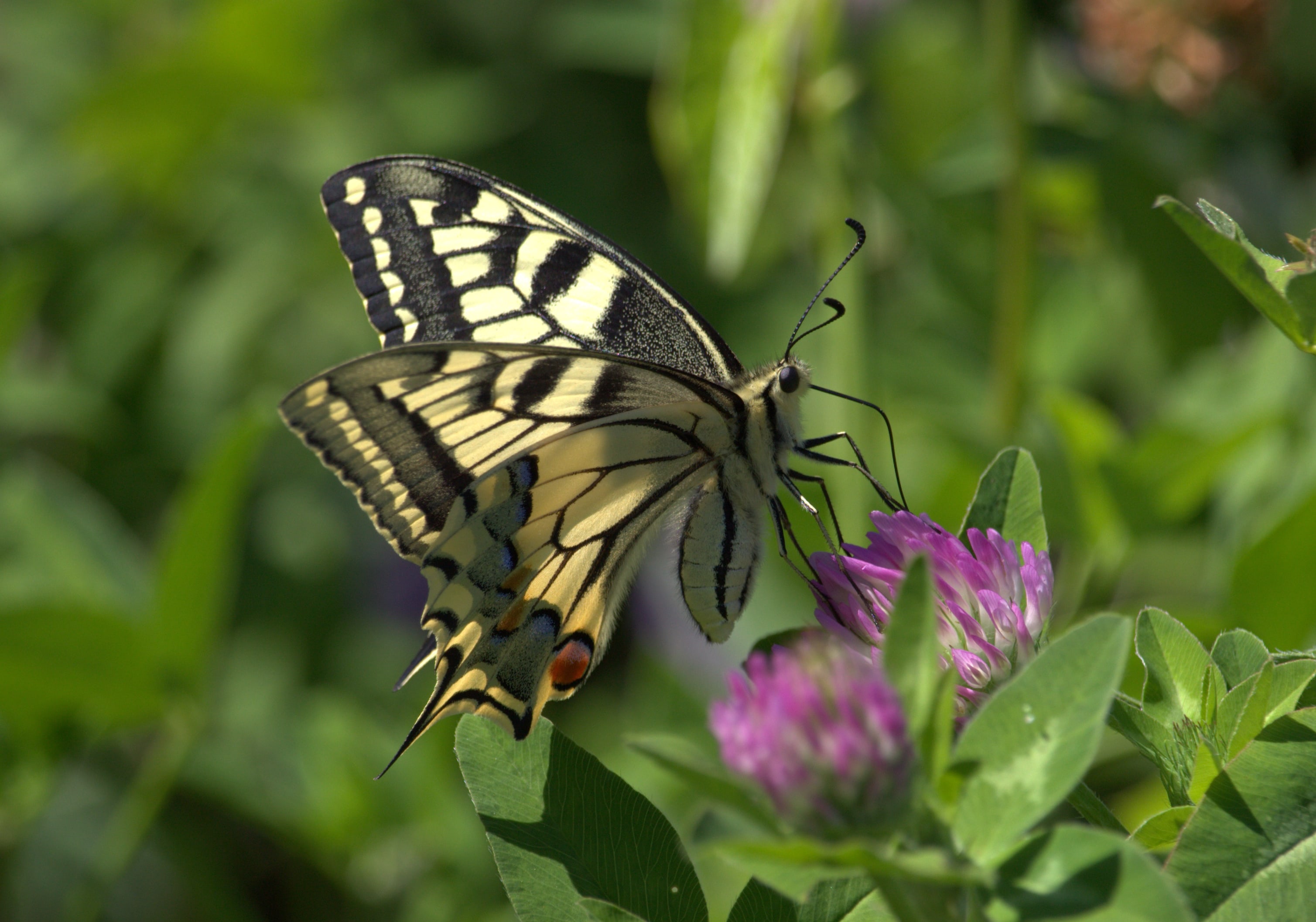
Producing ecosystem services
The Millennium Ecosystem Assessment (MEA) defines ecosystem services as the “multiple benefits provided by ecosystems to mankind”. That is to say, they are a series of services provided by ecosystems ranging from environmental to social and cultural from which humans gain, such as clean water, food, forest products, flood control, and natural resources. collateral to the classic idea of production as a consumer product. A regenerative agricultural system like that of Villa Fortuna, therefore, will contribute not only to producing raw materials such as fruit and vegetables but also to improving soil fertility, reducing erosion and water waste, providing habitats for bird and insect fauna, absorbing pollutants from the atmosphere and storing CO2, all of which help to mitigate climate change.
Hosting social promotion initiatives
In collaboration with the Cambalache Association of Alessandria, we have welcomed two asylum-seeker refugees. We would like to offer warm greetings to our most recent guest, Rubel, who has joined the project. Rubel is a young Bangladeshi beekeeping enthusiast who takes care of the hives in our green areas. Having been given the opportunity to study the subject in Italy and thanks to the European funds dedicated to immigrants, he started his own business producing “Rubel’s Organic Honey”.
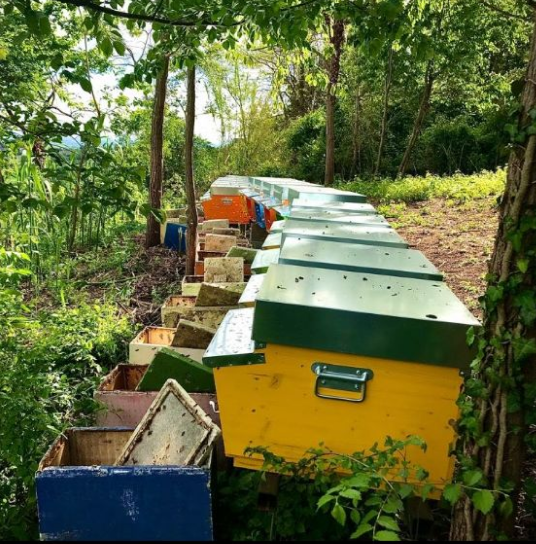
Future Projects
This is Reintegration Economy
Everything you read on this page is made possible by Reintegration Economy. A new economic model: it provides that the ownership and 100% of the revenues of a company* do not just benefit the few but are made available to all living species and their common home, the Planet Earth.
This company is Almo Nature, fully owned by Fondazione Capellino.
